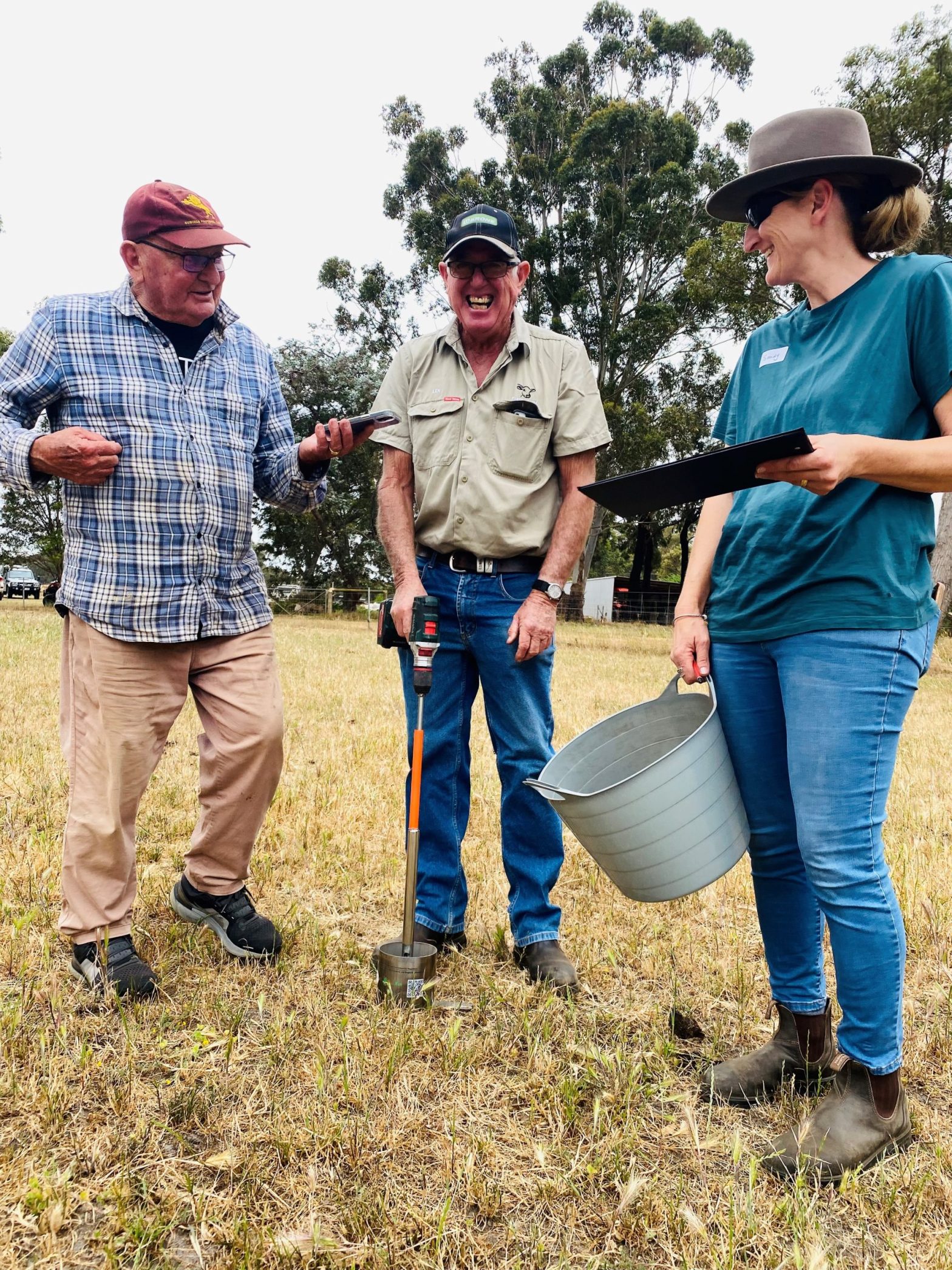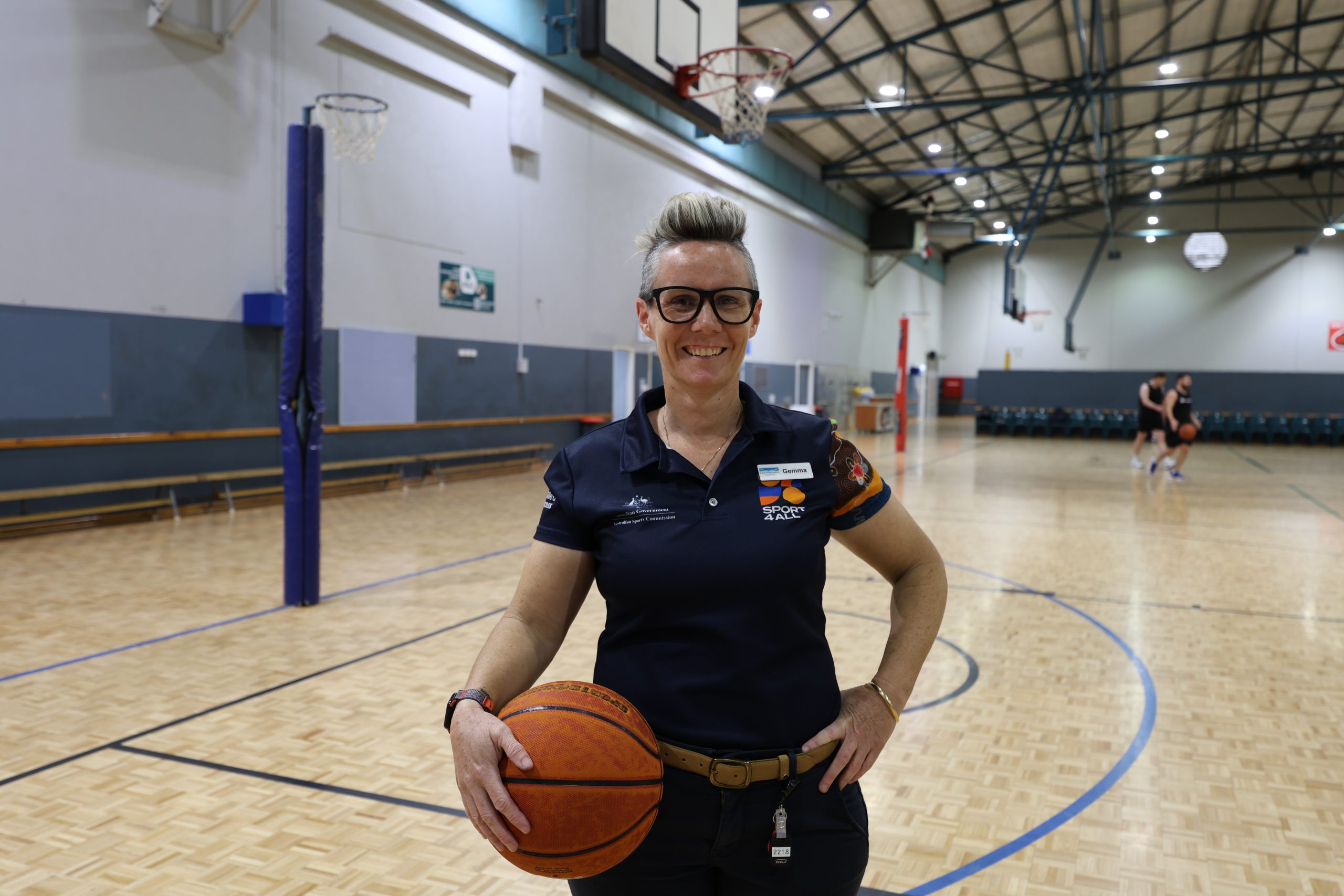'A must-do for all farmers'

Geographe farmers Mark Beeson, Len Hammersley and Sandra McMaster getting on the tools with the Geographe Soil Testing Program.
Beef, sheep, and dairy farmers are now invited to apply for the 2024 Geographe Soil Testing Program.
Since 2010, over 40 percent of farmers in the catchment have been involved in the program, reaffirming that soil testing on farms is now common practice amongst the agricultural community.
Local beef farmer, Robyn Robertson highly recommends the program for those that are keen to learn more about their soil and how they can be more efficient with fertiliser.
“The program gave me information so I could get the most out of my farm, know where my dollars are best spent and how to better understand my soils,” Robyn said.
Walsall beef farmer, Ross Prater concurred.
“It’s been 100 percent worthwhile. A must-do for all farmers,” he said.
The program is designed to help farmers make informed decisions about fertiliser applications, optimise farm production, reduce unnecessary costs, and minimise nutrient losses into local waterways.
It offers comprehensive support, including whole farm soil testing, colour-coded nutrient maps, soil and plant nutrition workshops and spring plant tissue testing.
Following the soil and plant tissue testing, a customised fertiliser plan is developed by the farmer’s chosen Fertcare accredited agronomist, where the plan is tailored to each farm’s specific production requirements.
Each year, the program expands, and 2023 was no exception. GeoCatch worked with over 50 farmers to soil test more than 7,300 hectares of agricultural land in the Geographe catchment.
GeoCatch Project Officer Jenelle Schult said soil testing was a win-win for farmers and the environment.
“Being part of the program helps farmers save money on fertiliser, improves farm productivity and reduces nutrients entering Geographe Bay,” she said.
David Rogers, Senior Development Officer from the Department of Primary Industries and Regional Development (DPIRD) said that extensive research showed that most paddocks already have sufficient phosphorus for good pasture growth.
“Although soils in WA have a reputation for being nutrient poor, our testing of 30,000 south-west WA paddocks has found that more than 70 percent have phosphorus levels higher than what is needed for maximum pasture growth, while many have other constraints limiting production.”
“This means that many farmers are applying more phosphorus than their soils and pastures need. In
most cases, money is wasted on phosphorus fertiliser that is not needed,” Mr Rogers said.
The program is open to beef, dairy and sheep grazing enterprises in the Geographe catchment and is
being offered by GeoCatch in part in partnership with Department of Primary Industries and
Regional Development and Department of Water and Environmental Regulation.
Applications for the Geographe Soil Testing Program are open until Sunday, 28 July. To learn more or
to register your interest, visit https://estuaries.dwer.wa.gov.au/strategies/sustainable-
agriculture/soil-testing/ or contact GeoCatch on 0491 069 078 for further information.
This project is part of Healthy Estuaries WA and Revitalising Geographe Waterways programs. These
State Government initiatives aim to support the long-term health of our south west estuaries.


















